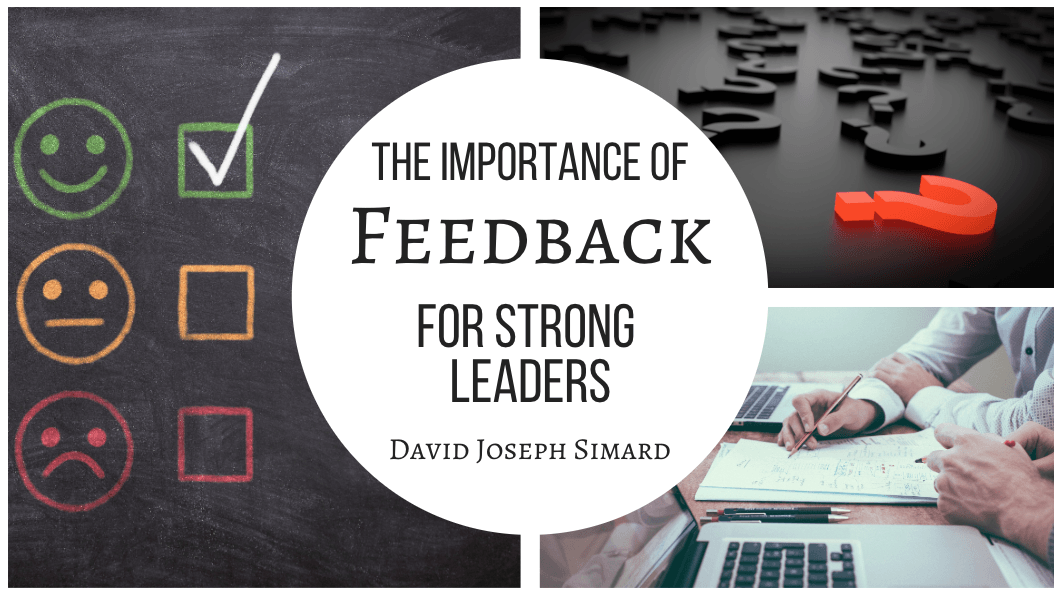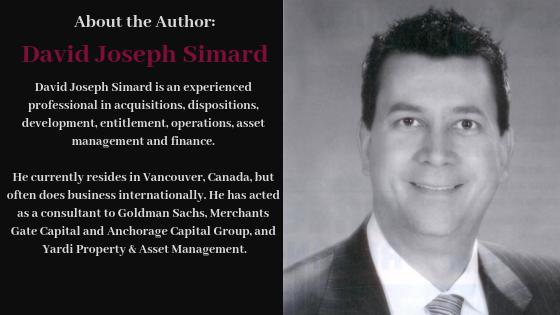
Best Email Practices for Leaders
Communication is regarded as one of the most important skills an effective leader can have. This proficiency in communication extends beyond face-to-face conversations, phone calls, and presentations. Though the above examples certainly require excellent communication skills, leaders must also strive to uphold their same prowess when it comes to email correspondence.
Preparation
It can be easy to think of email as a step up from text messages, but email should not be used as a means to convey information quickly. Instead, leaders should be careful and thoughtful when deciding what to write in their emails. Before writing anything, consider not only what you want to say but also your intentions in sharing this information and your expectations for your recipients’ reactions.
If the information could be more effectively communicated in person or over a phone call, choosing one of those options will limit the potential for misunderstandings and improve relationships.
Deliberate Choices
Emails make communication simple and quick, but this feature has become somewhat overused. Rather than rushing to write an email and sending it upon finishing it, leaders should take time to read over their message. You want to make sure your message is clear, concise, and deliberate. Additionally, your message should be as straightforward and simple as it can be; this applies to the subject line, as well.
Rather than opt for a vague, generic subject line, choosing a specific title that references the specific contents of your email will be more valuable and recognizable to recipients. Understanding how individuals view, read, and organize their inboxes based on priority or importance can help you recognize the need for specificity in your emails.
Directness
When leaders email other members of their business, external partners, or clients, it is important that they do not leave their own intentions a mystery. Asking explicit questions, prompting a response, or establishing a time to discuss a topic in person shows your recipients that you are organized and actionable.
Brevity also plays a part in this matter. If it takes you half an hour to draft an email or your email exceeds a few brief paragraphs, you may be better off speaking to your recipient in a more direct manner. Use emails to convey information that is brief, easily understood, and non-urgent. Understanding this will help you improve the contents of your emails and increase readership.
Mastering the art of email can be challenging, even for experienced leaders. Even so, it is an essential component of modern leadership that should be a priority for all leaders.


The Importance of Feedback for Strong Leaders
Strong leaders display many positive attributes. Some people might be surprised to learn that one such trait is an individual’s ability to both give and receive feedback, both positive and negative.
Here are several methods for effective managers to offer and receive feedback.
Render Feedback At The Appropriate Times
Efficient and respected leaders understand the importance of offering feedback at the proper times. In most instances, criticism should be reserved for private, one-on-one sessions between manager and employee. That said, mild, constructive criticism or staff-based critiques can be executed in a public manner provided said actions are executed politely and professionally. Experienced leaders suggest that praise is best carried out publicly.
Enable Feedback As A Trust-Building Activity
Solid leaders will not shy away from asking for feedback from their staff members. Said interaction often builds a level of trust between employer and employees. Additionally, allowing workers to offer suggestions regarding various work-related issues can make those individuals feel more invested in the entity’s operations and more motivated to perform at an optimal level.
Avoid Giving Feedback During Extreme Moods
Employers are advised not to render any type of criticism while experiencing mood extremes, such as anger or joy. When a leader is angry or annoyed, they may express an overly critical attitude that is not necessarily related to an employee’s performance, but the manager’s current emotions. Conversely, praise should not be given when an employer is in a jovial frame of mind either. Such effuse praise might not be a true indication of the employee’s overall performance.
Give Employees Time To Prepare
Effective managers will not dump a heap of criticism on an employee out of the blue. Executing such actions may fluster a subordinate, leading to an adverse impact on their job performance. Experienced managers agree that it’s usually best to give employees time to prepare for a critique session by making an appointment to meet and informing the individual that the discussion will be in reference to their job performance. This should be a conversation where a manager can also acquire feedback from the employee.
Do Not Avoid The Inevitable
Some managers avoid offering feedback because the process of rendering such information can be difficult and uncomfortable. That said, those who hold and maintain executive positions understand that the feedback process is often necessary to help an employee maximize their utmost potential for both professional development and overall success of the company. Feedback is only helpful if it can be acted upon, therefore time is of the essence so corrective measure can be taken.
Be Honest
As challenging as accepting the necessity of the feedback process may be, rendering honest assessments of an employee’s performance can be even more difficult. However, effective leaders understand honesty is the best (and only) policy when it comes to fostering an employee’s path to improvement and enhancing the overall position of the company or entity.


6 Books Every Leader Should Read
Learning and improving from personal experience is a great way to grow as a leader. Great leaders also know that preparation and research can teach lessons more quickly than if they were to make the mistakes themselves.
Here are 6 books that every leader should read if they want to be the best leader they can be.
Integrity: The Courage to Meet the Demands of Reality
By Dr. Henry Cloud
Integrity is a complex characteristic. In this book, Dr. Henry Cloud makes an impressive argument for why integrity is the key to success. Furthermore, he illustrates that integrity isn’t just something you’re born with. All of us have the opportunity for personal growth that will change both our personal and professional lives.
The Power of Positive Leadership
By Jon Gordon
Leaders are sure to face obstacles and negativity on a regular basis. Keeping a positive attitude in the face of life’s challenges can be difficult, but it is absolutely essential to be genuinely positive as a leader. Positivity can create a great culture of empowered and motivated teams that achieve results.
Quiet: The Power of Introverts in a World that Can’t Stop Talking
By Susan Cain
Introverts may not be the loudest voice in a room, but innovative people who would rather listen than speak are significantly undervalued in some businesses. From Rosa Parks to Dr. Seuss, introverts have made major contributions to our world. This well-researched book does wonders in letting us see the benefit of harnessing an introvert’s skill set.
Give and Take: A Revolutionary Approach to Success
By Adam Grant
It’s universally accepted that hard work, talent and a bit of luck will lead to a successful career. Here, Adam Grant focuses on a fourth factor — bringing others with you on your way to the top. Grant is a professor at Wharton Business School, and he uses his own research and other success stories to demonstrate that nice guys don’t have to finish last.
Start with Why: How Great Leaders Inspire Everyone to Take Action
By Simon Sinek
Why are some businesses and people more influential and successful than others? Simon Sinek has an idea called the Golden Circle that explains how any person can become more inspired and inspire others in return. The basis of this idea is that people are inspired by the reason behind something, then make that mission their own.
By Jeff Boss
Sometimes, the only thing holding you back is yourself. In this book, former Navy SEAL Jeff Boss provides top executives with 23 mental exercises that enhance leadership and success.

About David Joseph Simard
David Joseph Simard is currently a private real estate development and construction consultant based out of Vancouver, British Columbia, one of Canada’s most desirable housing and commercial real estate markets. While paving an unconventional path to his successful career in real estate, Simard has found ways to incorporate his varied experience and education throughout each new project. In addition to the success he’s seen with his own consulting business, David Joseph Simard has also found ways to use his expertise to give back to various public and non-profit organizations. Some of these initiatives include an appointment as the founding President of the Canada Nevada Business Counsel and his service to the Board of UNLV’s School of Business.
Before settling down in Vancouver, David Joseph Simard first found his enthusiasm for real estate and new construction development at the University of Windsor, in Windsor Ontario. Here, Simard studied both industrial psychology and history/international relations. This trend in multi-disciplined education would continue for Simard, as his path then took him down to East Lansing, Michigan. At Michigan State University, he would go on to receive two Bachelor of Arts degrees in both industrial psychology and history/international relations. Forever the proud Spartan, Simard moved ahead with his pursuit of acquiring a Juris Doctorate from MSU, recognized as the highest level of education available in the United States’ legal sector.

It was by total happenstance that David Joseph Simard found his first part-time job in real estate while still in school. This wouldn’t be considered the most relevant job for an international relations major. But, Simard found a fast affinity for his work as a real estate broker and later moved on to the next phase of his career, transitioning to real estate development. Simard didn’t realize at the time that he was beginning a career in the industry that would span nearly 30 years. His path eventually led to the international real estate industry and consulting Fortune 500 companies, keeping their multi-million dollar projects on time and under budget.
David Joseph Simard‘s current role finds him continuing his consulting services for global companies, some of which include General Dynamics, Ericsson, and AT&T. Simard’s varied expertise lends his consulting services in legal, financial, and business operations, while providing turnkey real estate project management solutions. Seeing a new construction project begin to take shape is what has kept Simard on this path. The capability to see a project to completion through all areas of a commercial and residential real estate development has enabled Simard to make his mark throughout the industry. When working with Simard, his clients have echoed the same positive experiences of having worked with a unique talent that can guide them through the full life cycle of a project and across all phases.
In addition to his other public service efforts, David Joseph Simard has also served the Boards of the Lied Institute for Real Estate, NDA, and NAIOP. When spending time outside of his professional path, Simard is a wine enthusiast that you may likely find attending a wine tasting at one of Vancouver’s fine vineyards. He also enjoys more strenuous outdoor activities like snowboarding, skiing, and hiking.
